Reading (inc Phonics)
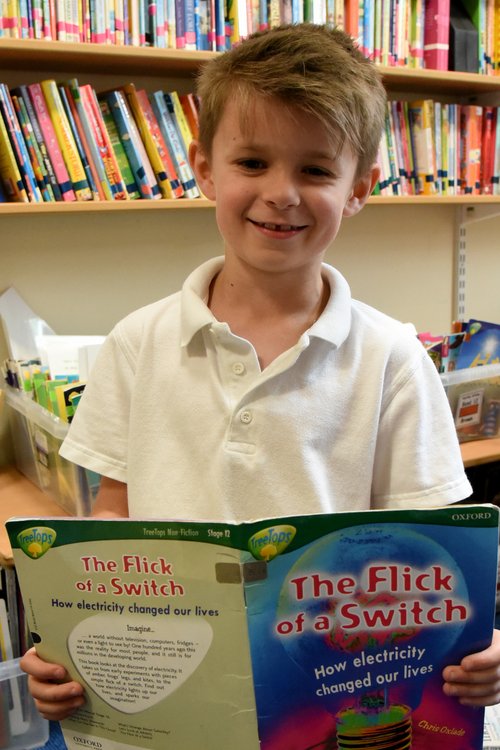
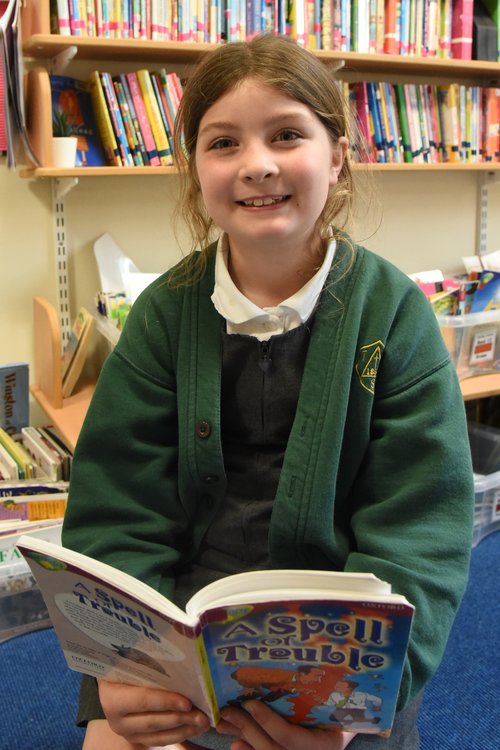
What does reading look like at our school?
At Triangle the teaching of reading of utmost priority as it provides the key to accessing so much of the curriculum and is a key indicator of success in later life. The teaching of systematic synthetic phonics provides the foundation to this. We offer as many opportunities as possible for children to read in both formal and informal settings and aim to promote a love of reading for pleasure.
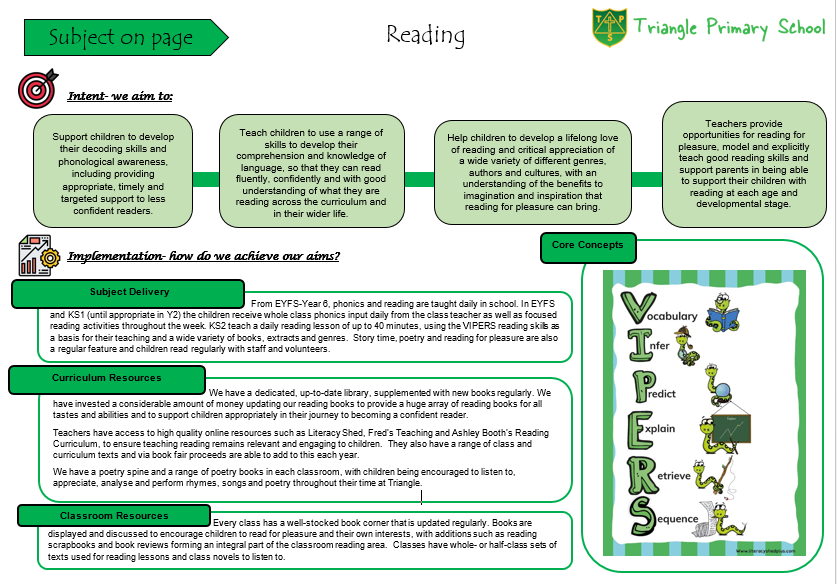
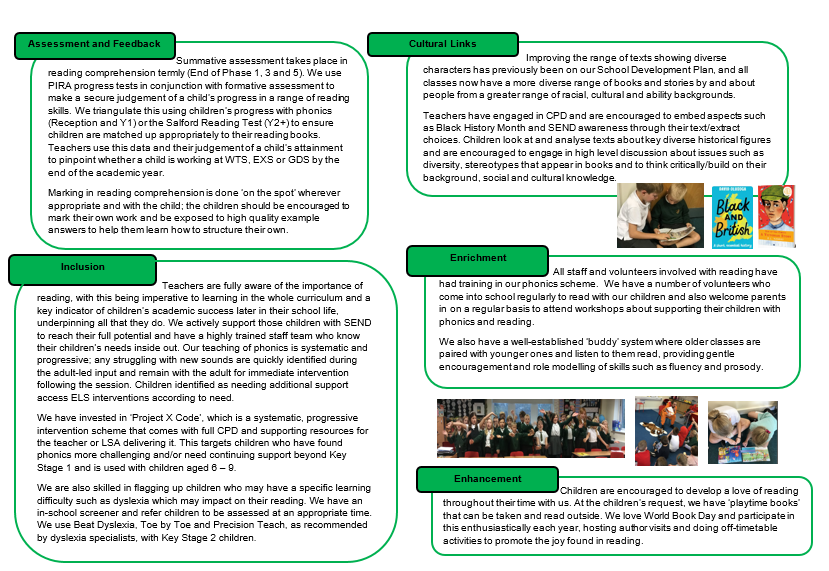
Phonics
Our approach to teaching phonics begins in the Foundation Stage and into Key Stage One. Our Foundation Stage and Key Stage One staff use a high quality Systematic Synthetic Phonics scheme, Essential Letters and Sounds (ELS), which provides a well structured and resourced program that helps all children to read quickly and read well. Our children have usually become fluent readers by the end of Year Two. We have an excellent stock of fully phonically decodable reading books as well as a super library with a great choice of reading for pleasure books. During your child’s time in school, you will be offered the opportunity to attend workshops which help you to understand the way we teach phonics in school and how children are assessed in Year 1 with the government Phonics Screening Check. Historically our children’s results in the Phonics Screening Check have always been above both local and national average.
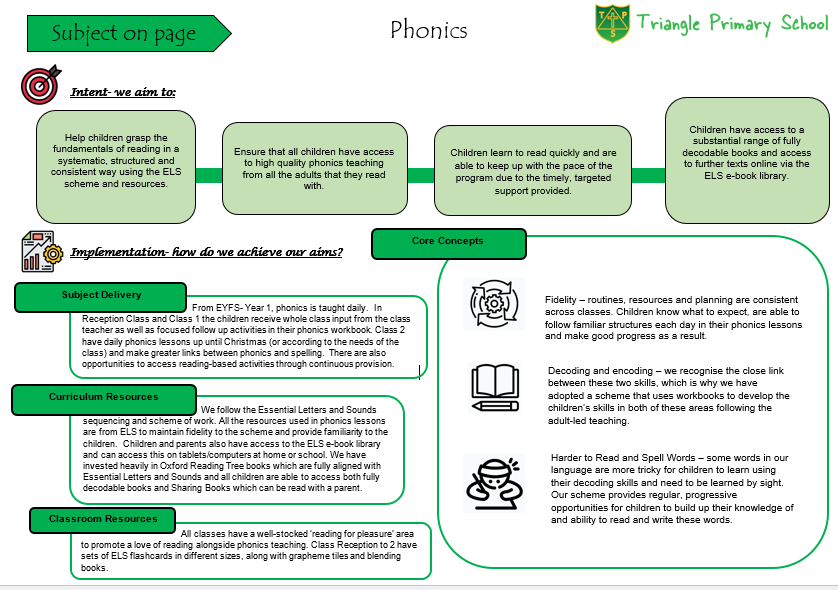
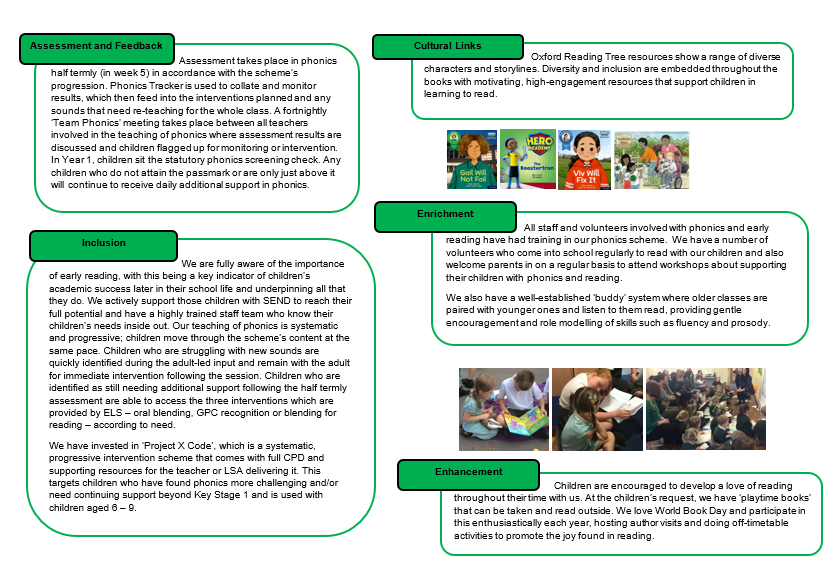
Reading Scheme
Following a strong start with their early reading in our phonics program, our school reading scheme following this is based on Oxford Reading Tree. To begin with, our scheme is closely matched to children’s phonic development so that all children are able to experience success with independent reading from an early age. Following this, teachers monitor the progress and attainment of children’s reading carefully so that they are able to access high quality texts independently. The aim of our scheme is to develop fluent, competent readers who understand what they have read. The scheme contains books from different genres so that children get used to reading stories, poems, traditional tales, play-scripts, fiction and non-fiction. We have many trained volunteers who, along with teachers and teaching assistants, provide children with opportunities to read in school. It is also expected that children will read at home most days and parents are given advice and support to help with this. Reading records are sent home with reading books and we aim to work in partnership with parents in helping children both to learn to read and to love reading. We have a well-stocked library which children are encouraged to borrow and read across a range of genres from. We recognise that some children may have barriers to learning to read, and have experienced staff who are skilled in supporting children with challenges such as learning to read when you have dyslexia. Our end of Key Stage 2 reading attainment results are above national and local average.
Teaching Reading

Reading lessons begin in Reception and continue throughout school. Reading is taught using a variety of methods appropriate to the class, stage, text and needs of the individual children. At times, particularly with our younger children in Key Stage 1, children are grouped and share a text with a well-trained adult in a small group setting. As children get older and become more fluent readers, a text is used with the whole class. In both instances, children are encouraged to listen carefully to others reading aloud, to read aloud with expression and prosody themselves, along with asking and answering questions about the text they are reading. These sessions are intended to be pleasurable and to help to foster a real enjoyment for reading, as well as helping children to develop the skills they need to understand what they are reading and appreciate the author’s intent. The texts are carefully chosen to offer challenge and a wide range of genres and subject matter. The aim of these reading sessions is to challenge children with texts that are slightly beyond their current reading level in order to develop their decoding and higher order comprehension skills.
Reading-Progression-Curriculum-Vipers-Vocab-Texts-1Reading across the curriculum and beyond
Reading is a fundamental part of much of the school curriculum. In English lessons, children analyse texts and many of our writing units are based around books and stories. Children in Infants pair up with a ‘Reading Buddy’ from the Juniors to share stories; something that is enjoyed by all children. Additionally, we invite a Book Fair into school each year and children visit this with their teachers and parents.
School library
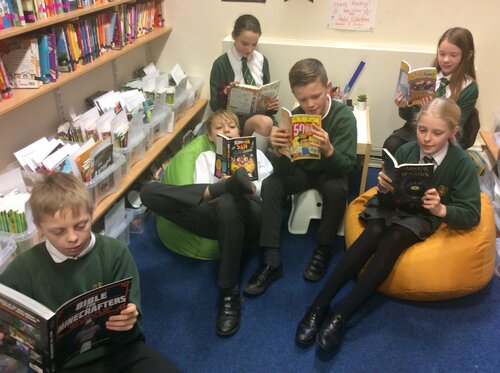
The school has a well-stocked library that has many genres of books appropriate to age. The books are attractively presented to encourage children to move from the more formal process of learning to read to reading for pleasure. The books are grouped by genre and our ‘free-readers’ are encouraged to read from different genres and understand what type of books fit where. All of our classrooms have a reading area for children to enjoy and be proud of.
